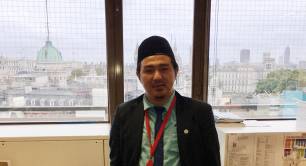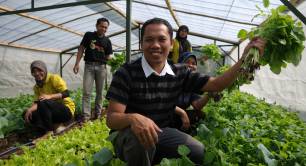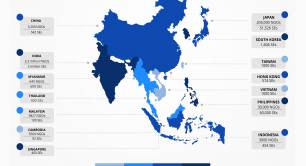It’s time to give Filipino social enterprises wings
The Philippines has a fast-growing economy, but poverty remains entrenched. New research reveals thousands of social enterprises are successfully tackling social problems, but more needs to be done for the sector to really fly.
Social enterprise in the Philippines is taking off. The number of social enterprise start-ups has tripled in the last decade. A new wave of young social entrepreneurs is emerging. Social enterprises are empowering women, creating a significant economic impact and most have strategies in place to grow.
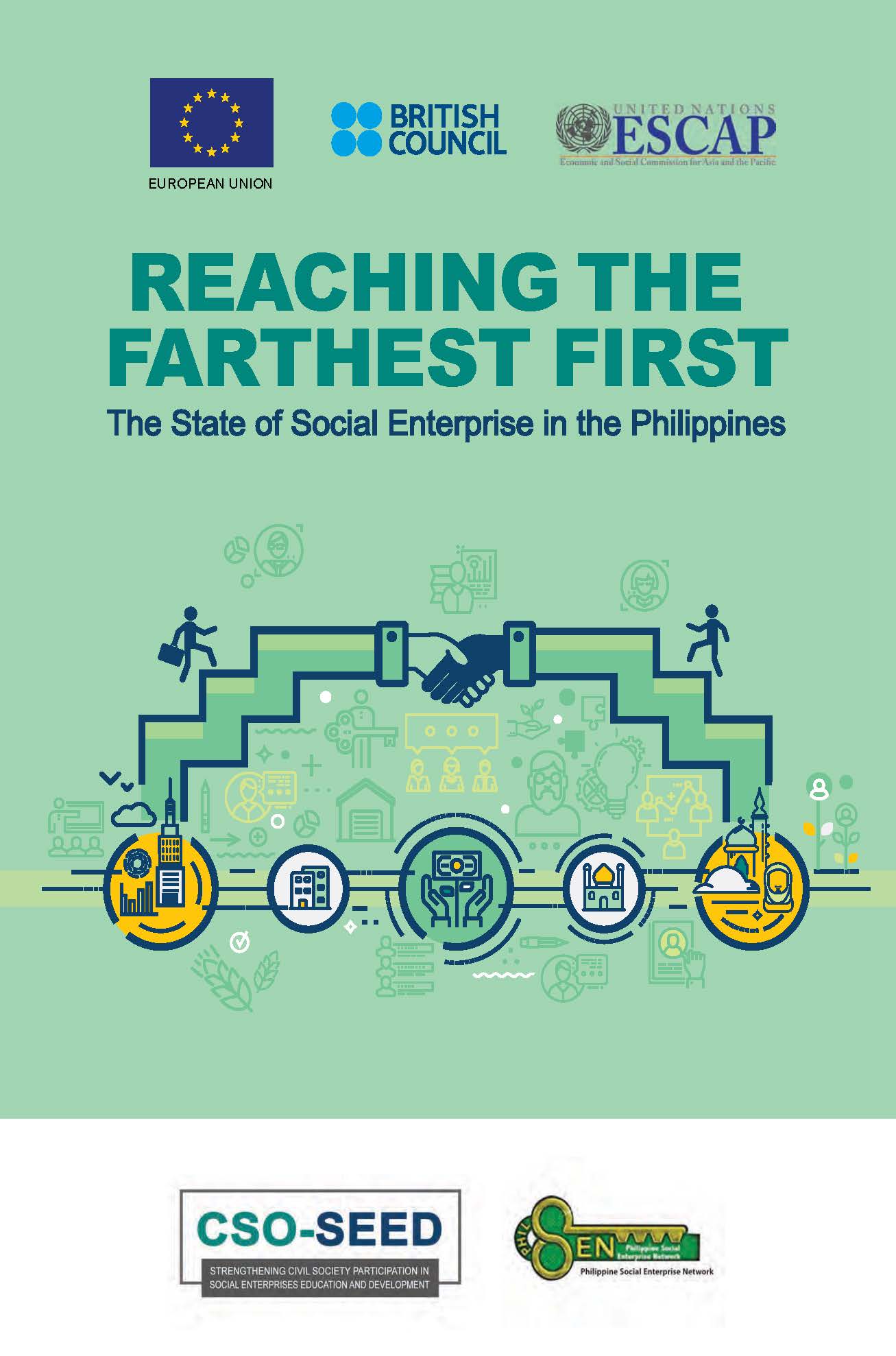 These are some of the discoveries made by new research which, for the first time, maps the size and scale of social enterprise in the Philippines. Reaching the Farthest First: The state of social enterprise in the Philippines is published today by the British Council, the European Union and the United Nations Economic and Social commission in Asia and the Pacific.
These are some of the discoveries made by new research which, for the first time, maps the size and scale of social enterprise in the Philippines. Reaching the Farthest First: The state of social enterprise in the Philippines is published today by the British Council, the European Union and the United Nations Economic and Social commission in Asia and the Pacific.
Maria Angela Flores, head of society at the British Council in the Philippines, points out that the Philippines needs what social enterprise can bring.
“Whilst the Philippines is one of the world’s fastest growing economies, the country continues to face entrenched social challenges,” she says.
“Poverty rates remain largely unchanged despite the economy’s growth. The growth is often touted as jobless and benefitting only a few. It is clear that something is missing. Social enterprises can be a very powerful agenda for change.”
Opportunities abound
The Philippines is a resource-rich archipelago in the western Pacific. There are lush rainforests, fertile agricultural land and rich mineral deposits. In addition to the 103m human inhabitants, the country is formally classified as “mega-biodiverse”, and is one of a handful of countries which together host up to 80% of the world’s plant and animal species.
On the other hand, the Philippines sits within the notorious Ring of Fire – a 25,000-mile stretch of land and sea circling the Pacific Ocean which shudders under the power of plate tectonics. The Philippines is therefore at constant risk from earthquakes and volcanic eruptions. What’s more, typhoons regularly wreak havoc; the strongest Philippine typhoon on record was Typhoon Haiyan, which hit in November 2013 and affected nearly 13m people.
Politics too has an important influence on the country’s fortunes. The Autonomous Region in Muslim Mindanao, part of the most southerly group of the islands, suffers from unrest and insurgency and the area remains poorer and less developed than its neighbouring regions.
Despite these challenges, the report emphasises that opportunities abound for the Philippines’ emerging economy. The country’s working age population – with high literacy rates – is one of the fastest growing in the world. In 2016, the Philippines’ economy was a world-leader with 6.8% GDP growth.
The missing link
The study presents findings from a survey of 206 social enterprises in the Philippines. It concludes: “The results suggest an emerging and optimistic social enterprise sector buoyed by new entrants, diversified leadership, rapid innovation and a strong drive to address social issues.”
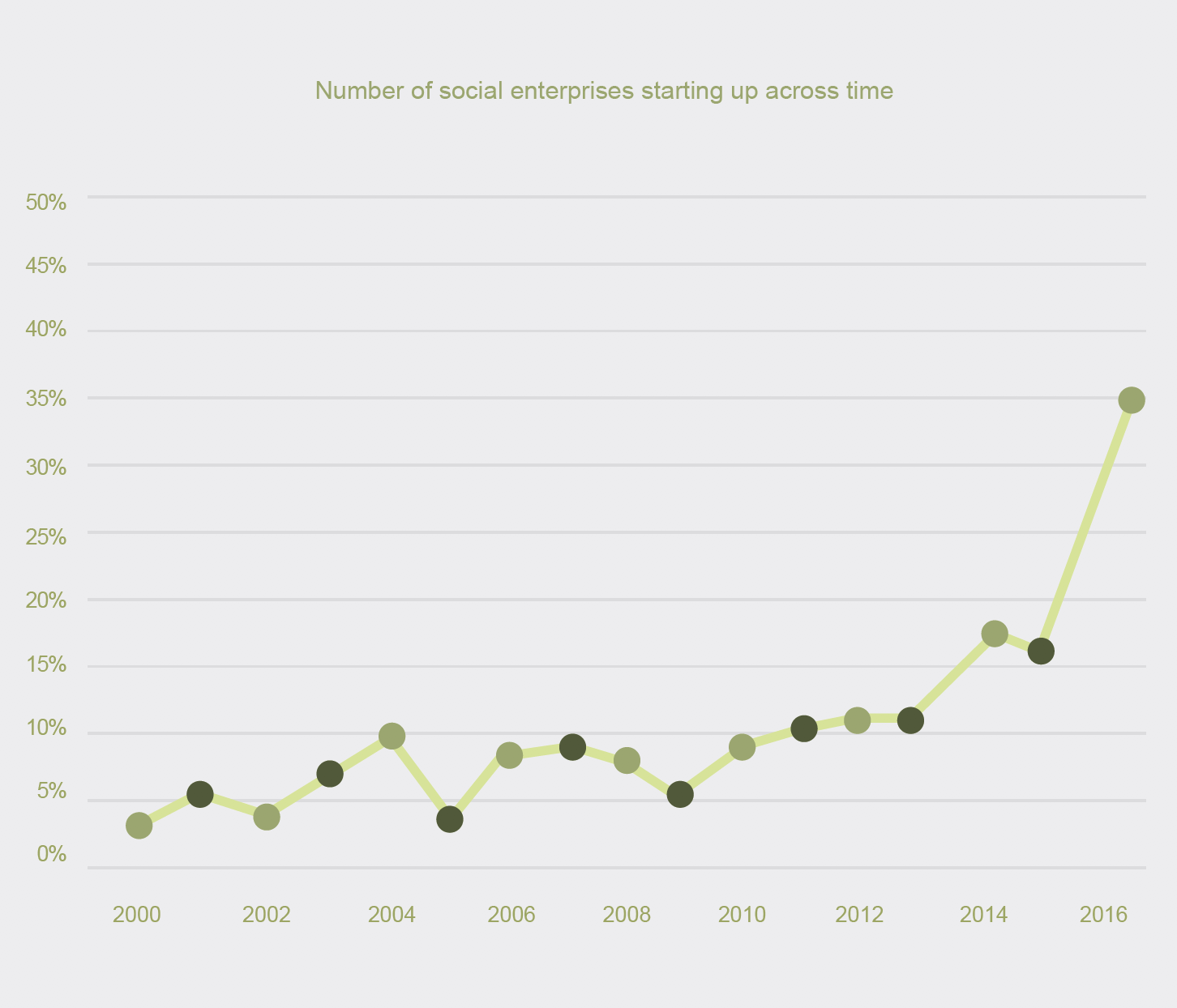
As inclusive growth is a key challenge for the Philippines, with fragile communities due to disasters and conflict, the study argues that social enterprises can help address these issues.
“Social enterprises favour inclusion of the most vulnerable and marginalised and provide an avenue for those left behind,” the report states. “In underdeveloped communities, social enterprises can be the missing link to ensuring that even those hardest-to-reach are able to benefit from the gains of the Philippines’ globalising and emerging economy.”
The study found:
- The social enterprises in the study employed 17,000 full-time staff this year.
- 75% anticipate staff numbers will increase in the coming year.
- Their median turnover was US$24,000.
- 28% of leaders were between 35 and 44 years old, although younger leaders were prevalent among start-ups.
- 44% are led by women.
- Agriculture is the most common sector of operation, followed by education and business development.
- The top objectives are generating employment, alleviating poverty, improving the local community and empowering marginalised groups.
- There may be as many as 164,000 social enterprises operating across the Philippines.
Although more than 60% have plans to attract new customers or develop new services over the coming year, the three top barriers to success cited by the survey respondents were all financial: obtaining capital and grant funding or maintaining their cashflow.
A push for legislation
Social enterprises make up a vibrant and exciting part of the Filipino economy, but, as yet, there is no legal definition or dedicated policies for social enterprise.
The Poverty Reduction through Social Entrepreneurship (PRESENT) Coalition is an alliance, founded in 2012, of social enterprise practitioners, advocates, NGOs and academics who have joined together to promote social enterprise as an approach to poverty eradication and economic development. One of its key aims is to push for the enactment of a “PRESENT Bill” which proposes a policy that “promotes an environment conducive to the development and growth of a vibrant social enterprise sector engaged in poverty reduction, economic and social development”. If passed and implemented, the coalition hopes the new law will see social enterprise becoming mainstream in tackling the Philippines’ social challenges.
Gomer Padong, development cooperation and advocacy director of the Philippine Social Enterprise Network (PhilSEN), explains that the coalition has been lobbying hard for the bill with different parts of the government. He reports that support is beginning to grow.
“I personally think that the government has started to recognise the power of social enterprises, but we need to do more and build on these,” he says. “In fact, the Department of Social Welfare and Development mainstreamed social enterprises in their Sustainable Livelihoods Program. The Department of Agrarian Reform is also using social enterprise as an approach to assisting their agrarian reform beneficiaries.”
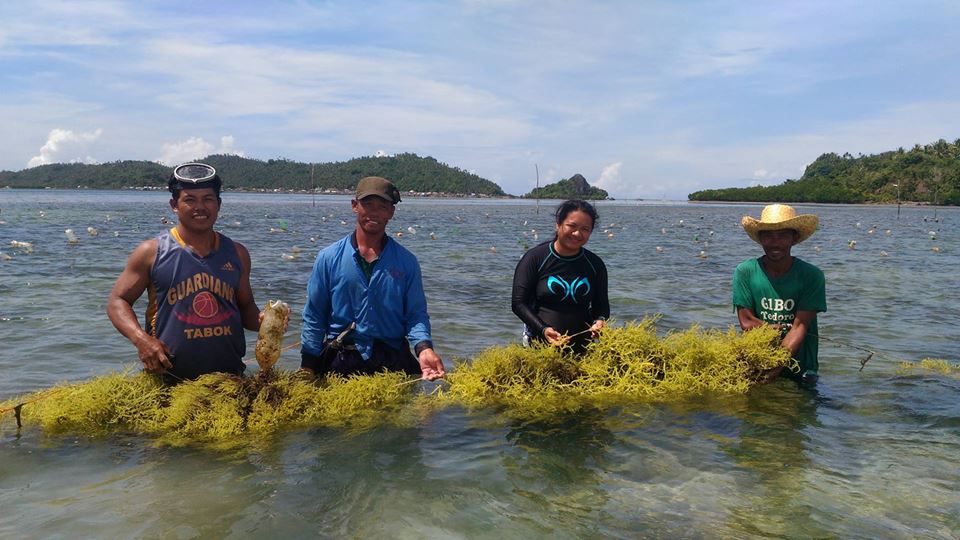
Above: Seaweed farming is a better way for some fishing families to earn a living
Maria Angela Flores adds that there are many stakeholders working to help grow the sector, but she believes that there needs to be some consolidation to make social enterprises a “compelling force for good”.
She says: “I think what is lacking is one voice for the sector. What I have seen in the UK experience is that stakeholders from various fronts, different advocacies and interests have come together and defined what shared winning looks like when it comes to social enterprise development.”
The report published today marks an important point in the development of social enterprise in the Philippines.
“This social enterprise research, the first of its kind in the country, is an entry point for all stakeholders to take a step back and reflect,” says Ms Flores. “Right now we are seeing some change in terms of the environment. We see that innovation is being encouraged across many fronts. But what is the longer term roadmap? That has not yet been defined.”
Header photo: Members of the organic farming co-operative Payoga NGO produce Greenfriend organic fertiliser.


